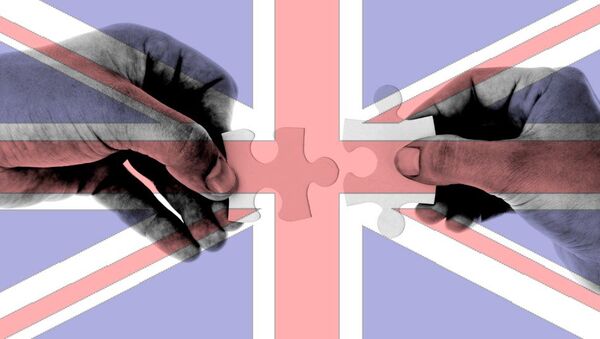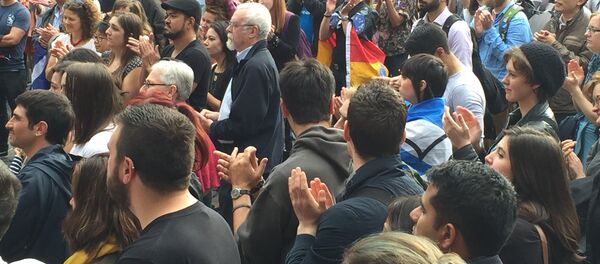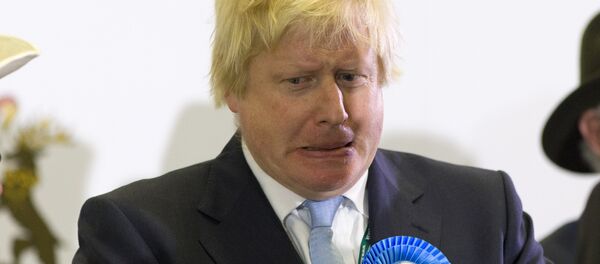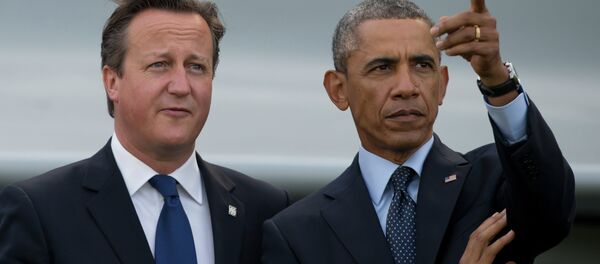WASHINGTON (Sputnik) – On Friday, UK officials announced that nearly 52 percent of British voters chose in a referendum to leave the European Union.
"In a vote driven by class conflict [Brexit was] a counter-attack by British workers against British/European capitalists coupled with nationalist racist xenophobia in the wake of the refugee crisis," California State University Emeritus Professor of Political Science Beau Grosscup said on Friday.
Grosscup warned the vote would stoke racial and religious tensions in Britain against recent immigrant groups.
"The move emboldens right wing, racist anti-Muslim, isolationist voices and forces British capital to engage in intra-capitalist conflict with the two powerhouse economies of the United States and the EU."
Grosscup also predicted that the referendum outcome would weaken trade unions and the political left in Britain by making workers more nationalistic and intolerant.
However, financial disruptions would be far less than feared, Grosscup said.
"Since Britain was never fully integrated economically into the European Union… and the regional [and] globalized capital flows are well established, the withdrawal will not require wholesale changes in the British/European capitalist circles."
The UK would have to negotiate separate trade deals with EU countries but it will not have to adjust to a wholesale change in currency regulations, Grosscup noted.
British policymakers were likely to draw even closer to the United States following the vote, he added.
"Politically this strengthens the traditional 'special relationship' with the United States while also fortifying the longstanding superiority complex of the British toward their continental cousins," Grosscup said.
The British withdrawal further challenges the notion of a European community of interests already shaken by the brutal austerity program for Greece and similar reform plans for Ireland, Italy and Spain, he said.
Losing Britain may also bring the ever-present German-French rivalry for European supremacy out in the open, Grosscup cautioned.
This could impact upon cooperative ventures including the building of a European Army free from the US-dominated NATO alliance, Grosscup concluded.
"The battle will be brutal," Bew predicted.
Former London Mayor Boris Johnson, a leader of the campaign to leave the EU was the frontrunner but was likely to face a serious challenge from a Cameron loyalist, widely respected Home Secretary Theresa May, Bew suggested.
A number of EU member states, including France and Germany, have expressed regret over the results of the UK vote. The majorities across most of England opting to leave were larger that pockets of voters in Scotland, Northern Ireland and London wishing to stay in the bloc.





